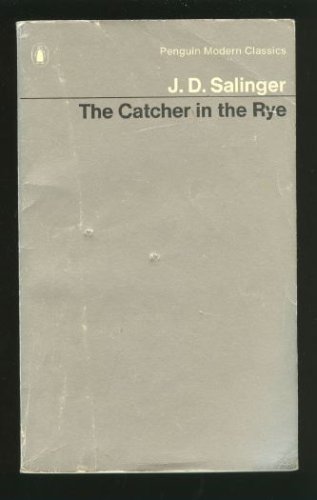All Nonfiction
- Bullying
- Books
- Academic
- Author Interviews
- Celebrity interviews
- College Articles
- College Essays
- Educator of the Year
- Heroes
- Interviews
- Memoir
- Personal Experience
- Sports
- Travel & Culture
All Opinions
- Bullying
- Current Events / Politics
- Discrimination
- Drugs / Alcohol / Smoking
- Entertainment / Celebrities
- Environment
- Love / Relationships
- Movies / Music / TV
- Pop Culture / Trends
- School / College
- Social Issues / Civics
- Spirituality / Religion
- Sports / Hobbies
All Hot Topics
- Bullying
- Community Service
- Environment
- Health
- Letters to the Editor
- Pride & Prejudice
- What Matters
- Back
Summer Guide
- Program Links
- Program Reviews
- Back
College Guide
- College Links
- College Reviews
- College Essays
- College Articles
- Back
The Catcher in the Rye
‘The Catcher in the Rye' is a tale about a redundant, teenaged school flunk named Holden Caulfield. Recently expelled from his current school and not looking forward to his parents' reactions, Caulfield decides to take a break from it all, and wanders the streets of New York City for a few days.
Caulfield's tale takes place in several locations, the primarily being Caulfield's current school, Pencey Prep., Caulfield's home, and various social places in New York City. At each location, Caulfield meets with acquaintances, varying from relatives to teachers to old classmates. One by one, Caulfield details his likes and, more so, dislikes of them. He despises and values the most trivial of characteristics, such as when Caulfield speaks admirably of, literally, how an old girlfriend used to play checkers.
The reader is constantly collecting the peeves of Caulfield, since he is always complaining about something or someone. His primary complaint is that of “phonies.” Even when he is not actually stating his abhorrence of depiction, the reader can still correlate the disproval. For instance, after mentioning his brother and aspiring writer, D.B., and his move to Hollywood, Caulfield expresses that he “doesn't like movies. At all.” Since movies are acts by actors, with pre-written lines, the reader can see why Caulfield isn't fond of the movies. Also, when Caulfield is speaking of books he has read, he mentions ‘The Great Gatsby,' another book that circles around the disproval of “phonies.”
Surprisingly, the book does find time for humor, though it depends on your personal view of what is humorous. For instance, when Caulfield visits the movie theater at Radio City, it is foreshadowed that he is going to absolutely despise the film he sees. A reader may think his description of the ridiculous film hilarious. Another may find it sad that he finds such disgust in an obvious light-hearted film.
But even throughout the nitpicking, swearing and blunt narration of Holden Caulfield, the reader develops a sense of relation. As Caulfield reveals details of his own life, the reader feels sympathy towards the young teen. One may find themselves understanding and relating to to the feelings of the anxious teen several times throughout the book.
And even if one never feels the tiniest bit of compassion for the sore Holden Caulfield, they cannot deny – he is a good story-teller.
Similar Articles
JOIN THE DISCUSSION
This article has 1 comment.


0 articles 0 photos 7 comments